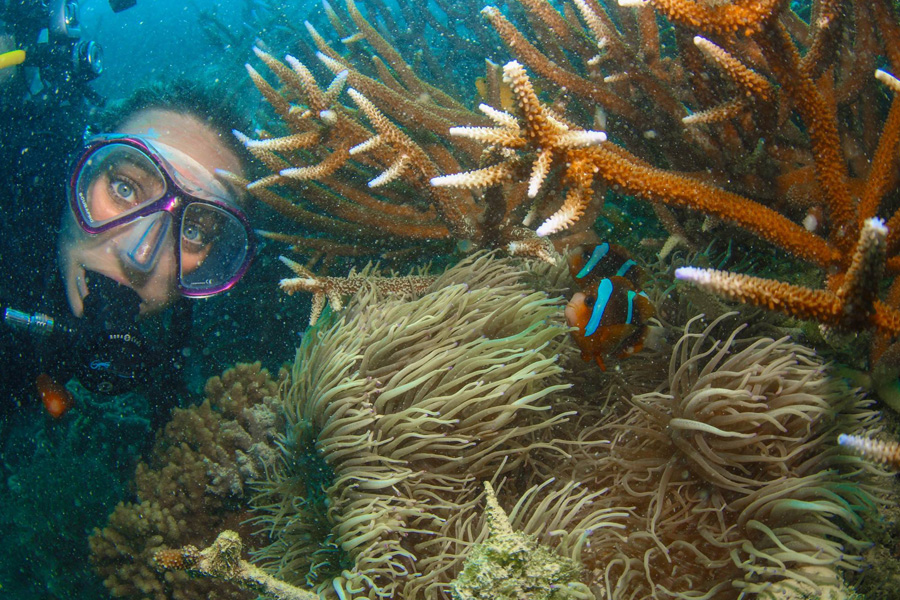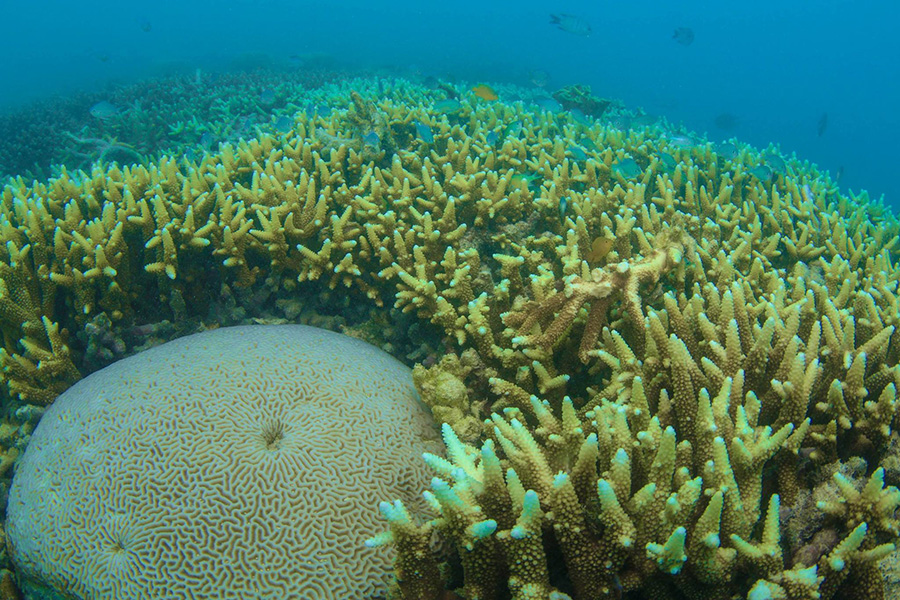Coral bleaching affected by Cyclone Debbie
In the wake of the Category 4 Cyclone Debbie, it is hard to see the bright side of such a huge weather phenomenon. However, in terms of coral bleaching, there may be a silver lining to the storm that hit the Whitsundays on 28 March 2017.

The Great Barrier Reef has been long affected by coral bleaching, which is the act of when coral releases its beneficial algae, which feed the coral in a mutualistic relationship. The dissolution of the relationship results in a bleached, exposed coral that is susceptible to death and starvation. Coral bleaching is mainly caused by an increase in water temperatures, which causes stress to the coral and algae. Coral bleaching is alleviated by decreased water temperatures, which luckily were brought about by Cyclone Debbie. The Great Barrier Reef is currently experiencing a bleaching episode, which began in 2015.
Bleaching has always been an occurrence in the Great Barrier Reef Marine Park. In our lifetimes, we’ve seen several bleaching episodes, with suspected episodes that go back long before humans ever visited the reef.

In 2017 Cyclone Debbie stormed through the Whitsunday Islands and parts of the Great Barrier Reef, bringing with it wild seas, strong winds and plenty of rain, which altered the composition of the reef. Along with the wild weather, the cyclone brought with it cooler waters up from the depths of the oceans as well as plenty of clouds that resulted in shaded reefs and decreased sunlight. The result was decreased temperatures on the reef that effectively cooled the water around the islands and the Great Barrier Reef.
The new, cooler temperatures are said to potentially positively affect bleaching in that the coral will become less stressed, resulting in lower mortality rates. Optimal temperatures for coral are anywhere from 23°c and 29°c, with recent temperatures recorded at 29°c since the cyclone.
The Great Barrier Reef Marine Park Authority reports on the effects of bleaching and what we can do to help, with pleads to the public to do their part in helping to maintain the health of the reef. While only time will tell if the cyclone positively affected coral bleaching or not, it is certain that the reef will, as it always has, bounce back.
Having been around for many millennia, it knows a thing or two about recovery, growth and resilience. As it presently stands, the water continues to remain cool and has dropped by about 3°c on parts of the reef.












